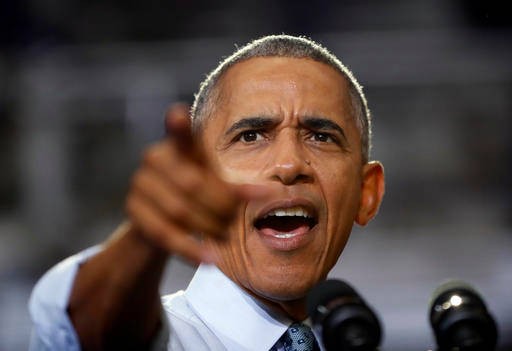A Conversation with Helene Cooper, Pentagon Correspondent for the New York Times
Helene Cooper is a Pentagon correspondent for the New York Times. She has been paper’s White House correspondent in Washington, Dc. In 2015, she was part of the team that won the Pulitzer Prize for international reporting, for her work in Liberia during the Ebola epidemic. She is also the winner of the George Polk award for health reporting (2015) and the Overseas Press Club Award (2015). Her deep knowledge of Pentagon dynamics is a precious reference for understanding how the war against the Islamic State is evolving.
Q.: Ms. Cooper, you are one of the greatest defense and military affair experts in US and your outstanding activity as Pentagon Correspondent for the New York Times is a privileged view on strategies and efforts to fight the Islamic State. What is your opinion about the operations led by US militaries to retake the city of Mosul in Iraq? Can we actually consider the IS near to be defeated?
A.: The Islamic State is definitely moving closer to being pushed out of almost all the territory that it had taken in Iraq. The Pentagon believes that the operation to re-take Mosul is moving as planned. Iraqi Security Forces have passed by the “Welcome to Mosul” sign that’s on the city’s east and are also advancing from the southwest. Once Mosul is retaken, the Islamic State will have no more large cities in Iraq under its control. That does not mean that the Islamic State is defeated. The group has pockets and followers all over the world.
Q.: In your opinion, what is the main concern of the US intelligence and military community about the future of the region? What kind of evolution should we expect after the expulsion of IS from Mosul?
A: I think the politics of Iraq will continue to be an issue after Mosul is re-taken, because the Iraqi government will still have to reckon with the divide between Sunnis, Shia and Kurds. If the Baghdad government doesn’t figure out how to get better Sunni buy-in, what happened before will likely happen again.
Q.: The allied coalition is very heterogeneous and the ground operations are conducted by different groups and militias. Is it possible to identify a US strategy to manage the post-battle transition period? Is there any real risk of new instability or internal tensions?
A.: The United States plan, as best I can see, is to encourage the Shiite government of Iraq to be more inclusive, post-Mosul. Yes, there remains a risk of new instability.
Q.: The final retake of Mosul came in a very particular moment for the US institutional and political life. Are the presidential elections influencing somehow the operations in Syria and Iraq?
A.: It’s not the presidential elections that are influencing Iraq and Syria so much as Obama’s desire to at the very least close the door on Iraq before he leaves office. He wants to be able to say to the next president that he drove the Islamic State out of Iraq.
Q.: The Obama administration has dedicated serious efforts to the fight against terrorists, experiencing losses and wins. In the last year the Special Presidential Envoy for the Global Coalition to Counter IS has changed and international actors such as Russia, Iran and Turkey strongly entered the conflict: do you think the new office will pursue Obama strategies or should we expect a substantial change of position by the new president?
A.: The strategy will say the same. They will just say it’s different. But what they do will be largely the same. Hillary Clinton has advocated a no-fly zone in Syria but the facts on the ground may have shifted to the point that she probably won’t be able to have her way on that. Plus the Pentagon opposes it. As for Donald Trump, I have no real idea what his strategy in Syria or Iraq would be as he has not clearly articulated.
Q.: How will be judged in the next years the Obama defense and security strategy? Will he be remembered as a president of peace or as a president of war?
A.: I just don’t know!








